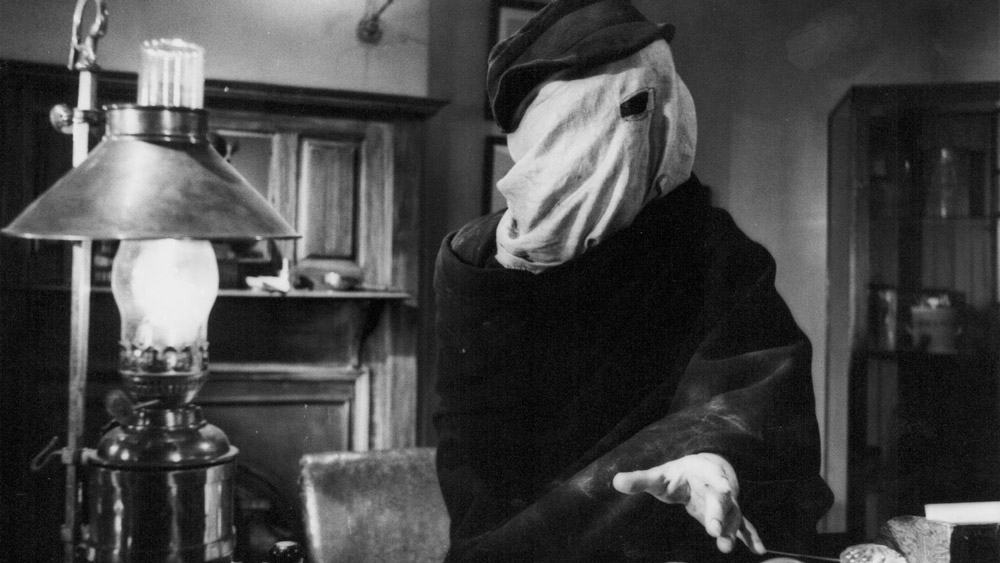The Elephant Man (1980) tells the true life story of Joseph Merrick (John Hurt), who suffered from severe deformities during his life in late 19th century London.
The second feature film from David Lynch is also one of his most straight forward. The narrative is quite simple in comparison to the writer/director’s later non-linear works like Lost Highway (1997) or Mulholland Drive (2001). Make no mistake though, he well and truly puts his unique mark on this production, no matter how mass-appealing it may have seemed at the time (I recommend you check out the original Paramount trailer on YouTube if you haven’t seen it already). What is interesting is how much control he appears to have been given, even with his previously proven surrealist style, highlighted here again in the impressive black-and-white cinematography by Freddie Francis, the opening and ending sequences, as well as the musical direction and sound design, which all appropriately come off as pure Lynchian.
One might see it on the surface as being a dulled-down studio film, but the understanding and subversion of this is what makes it a true classic. After the black-and-white body-horror of Eraserhead (1977), Lynch is an equally appropriate and risky choice here as director, and he shares writing duties, for what would end up being one of only a handful of times in his filmography. With the benefit of hindsight and the finished product, it is easy to see why he got the job. A balance of accessibility as well as ambiguity leaves you with a near perfect film that doesn’t come along very often anymore.
There is a brief moment early on where the relationship between humans and machinery is brought up by John’s doctor Frederick Treves (Anthony Hopkins), and this leads the audience to question how much benefit the industrial revolution has to offer in the light of damaged and lost lives in this setting (due to workplace accidents etc). Not an entirely new theme to observe, but Lynch’s fascination with this and his reluctance to answer questions put forth by his characters gives the audience some interesting food for thought. The focus on atmospheric factory work is something that Lynch has shot superbly over the years, and would return to most recently in Idem Paris (2013), a documentary short film that takes a close look at the lithographic printing process with no dialogue.

It should come as no surprise that a lot of the story in The Elephant Man is based on how humans interact with one another. This may sound like more of an emotional route for the movie to take (of which it does have its moments), but what makes it truly great is the study of human communication and why certain characters need to react the way they do in these situations – the lack of understanding in things physical, and how hard it is to verbalise for some, while we see others flourish in the realisation of John Merrick for the human being he truly was. It is unfortunate that the film at a very basic level, is about bullying and reminding people just how constant and unnecessary such behaviour is and always will be, whether it happens in the 1800’s, 1980’s or now. It’s interesting to note here too that the title of one of the books the film is based on, sums this theme up quite well in The Elephant Man: A Study in Human Dignity (1971) by Ashley Montagu.
The performances by this talented cast are all superb as to be expected. The friendship between Merrick and Reves is translated to the screen in a sensitive and respectful light by both Hurt and Hopkins. There is also the brief but pivotal role of Madge Kendal played by Anne Bancroft from The Graduate (1967). Lynch also seeks the talent of Kenny Baker for a cameo with some heartfelt words for Merrick towards the film’s climax. The film indeed makes you see the human being in everyone, no matter how they may appear on the surface.
Fun Fact:
The Elephant Man makeup took seven to eight hours to apply each day and two hours to remove. John Hurt would arrive on set at 5.00am and shoot from noon until 10.00pm. Because of the strain on the actor, he worked alternate days.




COMMENTS